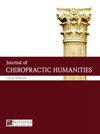马来西亚脊医对尊称的认知:一项质性研究
Q3 Health Professions
引用次数: 0
摘要
目的本研究的目的是探讨马来西亚脊医对使用尊称的看法,以及这些看法如何影响他们的职业认同和与病人的互动。方法采用半结构化访谈法对9名在马来西亚脊椎按摩协会注册的脊椎按摩师进行描述性定性研究。参与者是根据他们在马来西亚的积极实践来选择的,排除标准包括之前参与过类似的研究和潜在的利益冲突。进行主题分析,从访谈数据中确定关键模式和主题。结果:参与者认为荣誉头衔对他们的职业身份至关重要,许多人担心禁止使用“博士”头衔会损害他们的可信度。公众对脊医资格的困惑是一个反复出现的主题。与会者强调需要更明确的指导方针和公众教育来解决这些误解。尽管一些人支持《2016年传统和补充医学法案》,但其他人认为它阻碍了专业认可。结论研究结果表明,需要进行监管改革和公众教育活动,以提高马来西亚脊医的职业认同。进一步的研究应探讨尊称对患者预后的影响,并检查在脊椎指压治疗社区内认知的区域差异。本文章由计算机程序翻译,如有差异,请以英文原文为准。
Perception of Honorific Titles Among Chiropractors in Malaysia: A Qualitative Study
Objective
The purpose of this study was to explore the perceptions of chiropractors in Malaysia regarding the use of honorific titles and how these perceptions influence their professional identity and patient interactions.
Methods
This descriptive qualitative study used semistructured interviews with 9 chiropractors registered with the Association of Chiropractic Malaysia. Participants were selected based on their active practice in Malaysia, with exclusion criteria including prior participation in similar studies and potential conflicts of interest. Thematic analysis was performed to identify key patterns and themes from the interview data.
Results
Participants viewed honorific titles as essential to their professional identity, with many expressing concerns that the prohibition of the title “Doctor” undermines their credibility. Confusion among the public regarding the qualifications of chiropractors was a recurrent theme. Participants highlighted the need for clearer guidelines and public education to address these misconceptions. Although some supported the Traditional and Complementary Medicine Act 2016, others believed that it hindered professional recognition.
Conclusion
The findings suggest a need for regulatory reforms and public education campaigns to enhance the professional identity of chiropractors in Malaysia. Further research should explore the impact of honorific titles on patient outcomes and examine regional variations in perceptions within the chiropractic community.
求助全文
通过发布文献求助,成功后即可免费获取论文全文。
去求助
来源期刊

Journal of Chiropractic Humanities
Medicine-Complementary and Alternative Medicine
CiteScore
1.70
自引率
0.00%
发文量
7
 求助内容:
求助内容: 应助结果提醒方式:
应助结果提醒方式:


